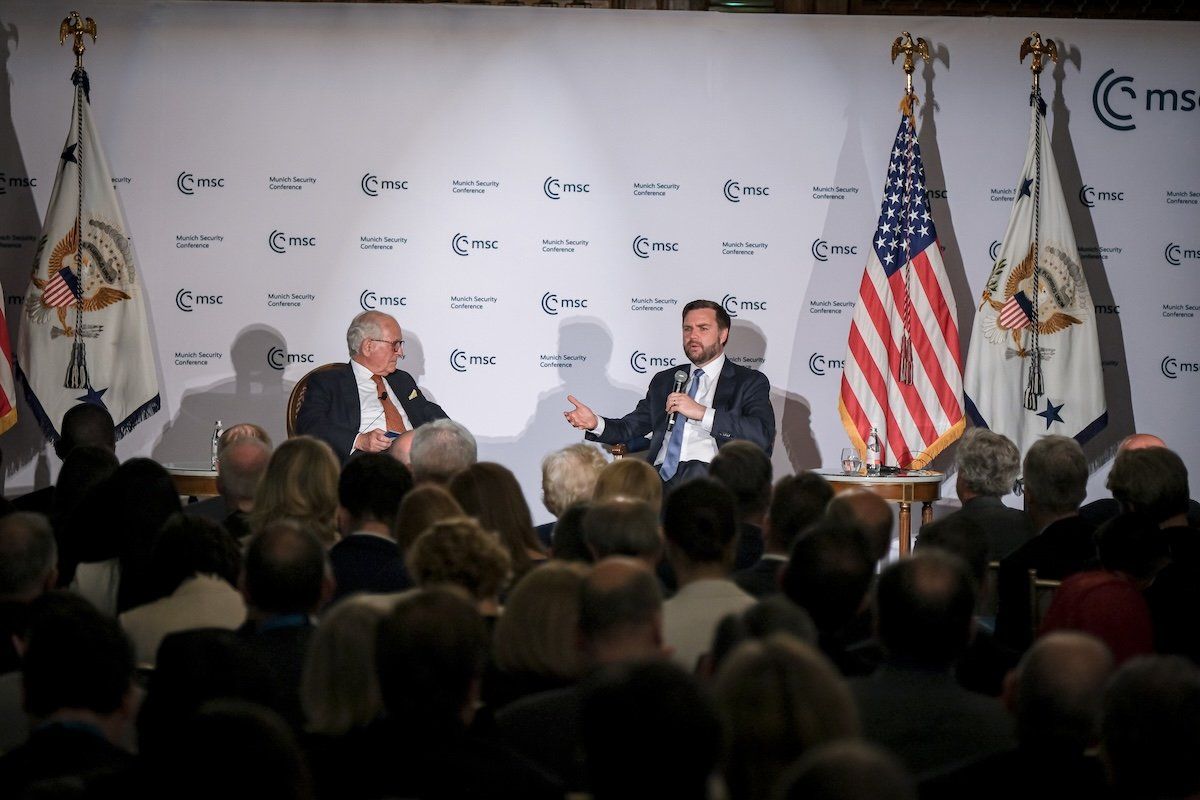On the 80th anniversary of the end of World War Two, the transatlantic relationship feels more fragile than ever. It was barely three months ago that US Vice President JD Vance laid into some of America’s closest allies at the Munich Security conference, blasting Europe for policies he said could “destroy democracy,” and warning Brussels “there’s a new sheriff in town.”
"That broke some china” as former US Ambassador to NATO Julianne Smith told me this week at a Munich Security Conference meeting in DC.
But just over 80 days later, as Smith and many of those same transatlantic leaders gathered in Washington for the stateside installment of the conference, the vibe has shifted -- for the better.
As former German Ambassador to the US Wolfgang Ischinger put it, after a panel discussion with Vance himself: “The reports of [our] death are greatly exaggerated.”
That famous Mark Twain quote sums up certain cautious optimism in the air. But Ischinger also warned that patching up the relationship would be a “difficult, probably slow, and maybe even painful procedure.”
What might that look like? Here are a few vibes to check over the coming months:
Vibe check 1: Is Europe going to spend more on defense?
Vance said at this week’s meeting that Trump now wants NATO allies to spend 5% of GDP on defense—more than double the current 2% target that many members already struggle to meet.
Prospects are good that the alliance’s members will deliver on that at an upcoming NATO summit in the Netherlands in June.
That's because, as the foreign minister of Estonia, a NATO member, told me, Europe needs to “be honest" that “the burden has been not shared in equal ways," and it's time for Europe to do its part.
Benedikt Franke, CEO and Vice-Chairman of the Munich Security Conference, told me that “money, money, money” is making him optimistic about a transatlantic rapprochement. “We see real money on the table [for defense] for the first time in a long time.”
Vibe check 2: Dialogue, dialogue, dialogue.
Vance’s return to the conference was itself not lost on European observers. Franke said “the willingness of the current administration to actually engage in a dialogue” is one of the biggest sources of optimism for him.
Watch for more transatlantic engagement that focuses less on combatively laying down terms for the relationship, and more on tackling shared challenges like securing a sustainable peace in Ukraine, managing economic and technological competition with China, and reaching a deal to limit Iran’s nuclear weapons development.
Vibe check 3: The art of the (trade) deal
Trade, of course, is one of the biggest challenges in the relationship right now. The EU this week readied fresh tariffs on more than $100 billion of US goods in case the Trump administration follows through on its plans to raise US levies on Europe from 10% to 20% in July.
Breaking the impasse on tariffs would be another strong sign of reconciliation. Ischinger sees a real prospect for a breakthrough, especially as the US is already sitting down for fresh trade talks with a much bigger rival, Beijing.
If Washington is having “meaningful trade discussions with China,” said Ischinger, “then eliminating the dispute between Europe and the US on trade issues should not be so difficult.”
But there’s a sticking point. The Trump administration generally prefers bilateral trade deals—a country-by-country approach that won't fly with the EU, which works as a bloc.
“They seem not to be aware of the legal situation in the European Union,” Ischinger says. “Even if they don't like this ganging up of 27 European countries, it just happens to be the fact of life and they'll have to deal with it.”
Overall vibe upshot: I left DC this week feeling a little lighter about the state of the world, with the sense that the transatlantic relationship is warming again.
But the hard work of refashioning that relationship in a way that acknowledges a significantly different US role begins now. Let’s see where we are in another 80 days.
